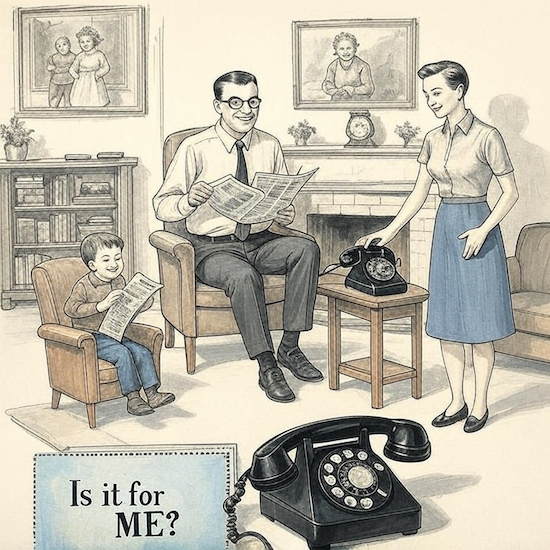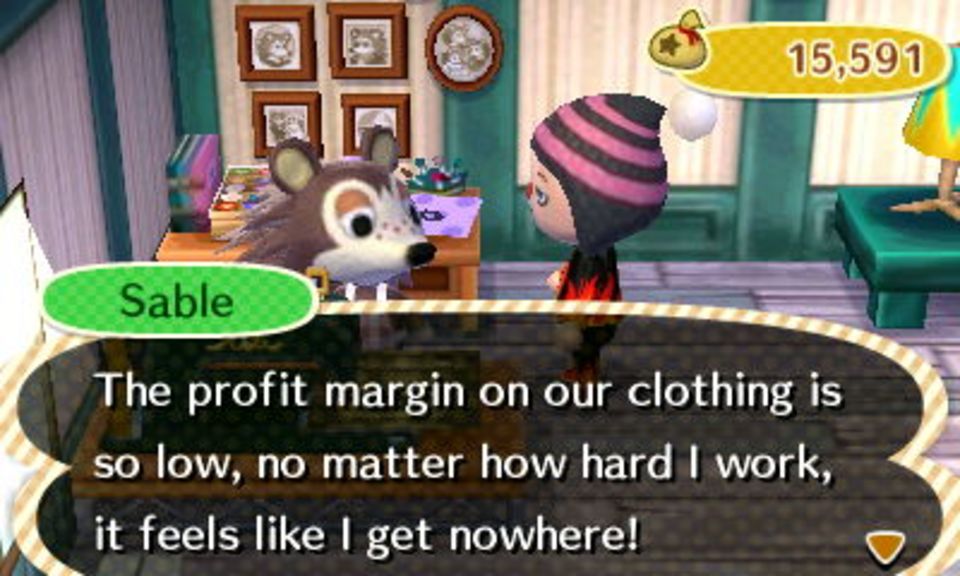I want a new ChatGPT mode where I drive the work, not the bot. I don't want it giving me answers to questions I didn't ask, because it's trying to navigate in my mind, and it has no information about that, so it's basically always wrong. I keep looking back on problems that took hours to solve because it drove the process and I went along with it. I want to tell it in advance to not make suggestions, to just answer questions. I call this "behave like a computer, not a human." Because it's a fanstastic computer, but not a good partner.
People and blogs involved with and about the IndieWeb community, the fediverse, and/or the open web in general.
An incremental migration
Morning web weaving
The profit margin on our clothing is so low, no matter how hard I...
This Week in the IndieWeb
Lots of good quotes from Alex Heath reporting on a dinner with OpenAI execs and others. Sam Altman:
I do think people will go to fewer websites. I think people will care more about human-crafted content than ever. My directional bet would be that human-created, human-endorsed, human-curated content all goes up in value dramatically.
This mirrors something I’ve blogged about. In a time of abundant AI slop, we will seek out human-created content and to feel a connection with other creators.
The big corner-turn is working. Here's a screen shot.
 I like documentaries about climbing Mt Everest, but I absolutely hate watching people climb El Capitan. Then I realized that sometimes in software I'm climbing a cliff that's too tall to climb in one session, so I have to carry a tent and backpack with food and water. I hate this kind of programming more than anything, because it comes from not having a high-level enough runtime to support me in big corner turns. Or not having invested enough time in creating a layer I can build on. Anyway I'm in the middle of one of those corner-turns now. Hell has not broken loose although at times it looks like it might have. I'm being sure not to create another mess that needs to be cleaned up in the future. Not stressful, but I'd rather be doing anything but this. :-)
I like documentaries about climbing Mt Everest, but I absolutely hate watching people climb El Capitan. Then I realized that sometimes in software I'm climbing a cliff that's too tall to climb in one session, so I have to carry a tent and backpack with food and water. I hate this kind of programming more than anything, because it comes from not having a high-level enough runtime to support me in big corner turns. Or not having invested enough time in creating a layer I can build on. Anyway I'm in the middle of one of those corner-turns now. Hell has not broken loose although at times it looks like it might have. I'm being sure not to create another mess that needs to be cleaned up in the future. Not stressful, but I'd rather be doing anything but this. :-)
Ben Werdmuller
• Ben Werdmuller
How Do We Tell the Story of Gaza’s Murdered Journalists?
"Now, nearly two years and more than 250 assassinations later, I can count the names of the living journalists in Gaza I follow on one hand."
Manuel Moreale — Everything Feed
• Manuel Moreale
P&B: Loren Stephens
I never want ads in the software I use to get things done, so this interview with Nick Turley of OpenAI was reassuring. Between what he said and what Sam Altman has said, their company seems very aware of aligning their business with users’ needs. Something Meta will never be able to get right.
Ben Werdmuller
• Ben Werdmuller
Funding Open Source like public infrastructure
"Open Source runs much of the world's critical infrastructure. It powers government services, supports national security, and enables everything from public health systems to elections. This means governments must help fund Open Source."
The thrill of rotary phones
 Is it for me?
Is it for me?
I’ll let you in on a little secret, OK? THE SUIT IS TAKING OVER...
Safari on iOS 26 is bugging me enough — especially the extra taps for tab bar items like closing a tab — that I’m switching over to Kagi’s Orion for a little while. I’ve been meaning to try it.
Jason Snell on how long it’s taken for Apple to bring back the blood oxygen feature:
I’m still surprised that it’s gone this long and this far, but Apple seems to be a company that will leave no legal stone unturned and will fight to the end when it feels it’s in the right.
So true. It feels like increasingly they aren’t right, but I’m on Apple’s side for this one, because it was holding back a legitimate health feature.
I made a change today that seemed right, but something about it was nagging at the back of my head. So before I deployed it, I asked our robot overlords… It correctly pointed out that I had forgotten the old code worked that way for a reason! A snippet from its analysis:
Original behavior likely intentional: archive_site previously only ran prepare_plugins(…, full_themes: false) so “small” plugins could contribute assets/includes, but it avoided full theme overrides and didn’t layer the user’s theme on top of “archive”.
As part of fixing the Mac app on Sequoia, I’ve switched builds over to Xcode Cloud. Gotta admit, it’s better than my old workflow. Maybe one day I’ll automate the appcast RSS feed. (I’ve been editing it by hand since 1.0 shipped in 2017.)
Great news for Apple Watch fans: blood oxygen feature coming back to recent watches. Sounds like they’ve worked around the patent by doing more processing on the iPhone.
I always try to avoid new preferences in Micro.blog because it can add a lot of clutter to the UI. Harder to use, harder to maintain. But adding better date and time formats this week, might be unavoidable. The “just do the right thing” defaults only get us about halfway there.



